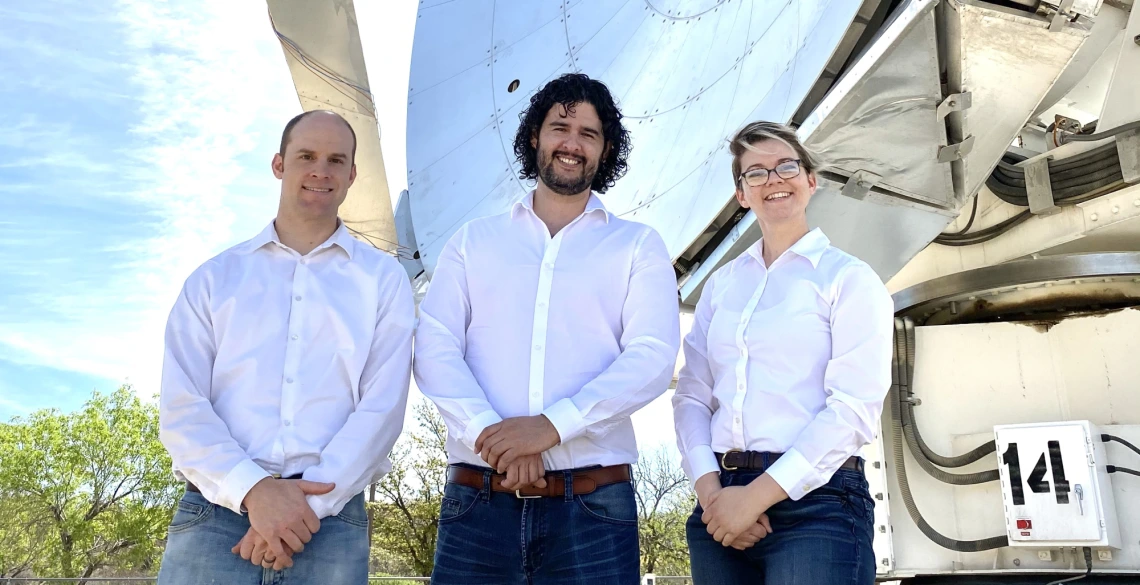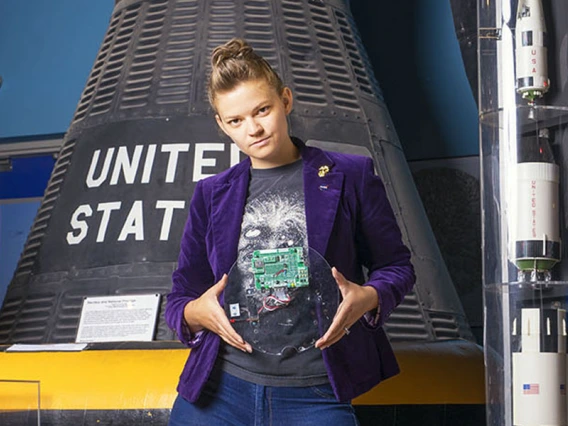Engineering Alum at the Helm of New Tech Startup
Mechanical engineering alum Roslyn Norman is the engineering manager at Paramium Technologies, which just received a $256,000 National Science Foundation Small Business Innovation Research grant.

The Paramium Technologies team includes engineering alum Roslyn Norman (right).
Paramium Technologies, a University of Arizona Center for Innovation startup, has been awarded a National Science Foundation Small Business Innovation Research, or SBIR, grant for $256,000 to conduct research and development work on efficient manufacturing methods for radio antenna reflectors.
The company's revolutionary technology will enhance a broad spectrum of industries, especially the world’s ability to utilize the internet, which is quickly becoming a vital utility for humans. The demand for satellite ground stations in communications, astronomy and architectural applications is forecasted to increase as developing countries are rapidly coming online. Paramium’s innovative manufacturing solution unlocks rapid prototyping capabilities for antenna designers because it is faster and more versatile than traditional methods. The underlying technology was developed by researchers and faculty from the University of Arizona College of Engineering, College of Science and College of Optical Sciences and is licensed through Tech Launch Arizona.
“Paramium is a ‘people-first’ company. People are at the center of innovation and Paramium values the unique minds of our workforce,” said Roslyn Norman, engineering manager at Paramium, principal investigator of the grant, and 2020 mechanical engineering alum. “With federal and local support, we plan to commercialize our patented technology, grow our business and bring more jobs to the Tucson community.”
With Phase I SBIR funding awarded to Paramium, the technology can advance to the next level and places the company in a prominent place to secure the next round of funding with a Phase II SBIR grant.
“NSF is proud to support the technology of the future by thinking beyond incremental developments and funding the most creative, impactful ideas across all markets and areas of science and engineering,” said Andrea Belz, division director of the Division of Industrial Innovation and Partnerships at NSF. “With the support of our research funds, any deep technology startup or small business can guide basic science into meaningful solutions that address tremendous needs.”


